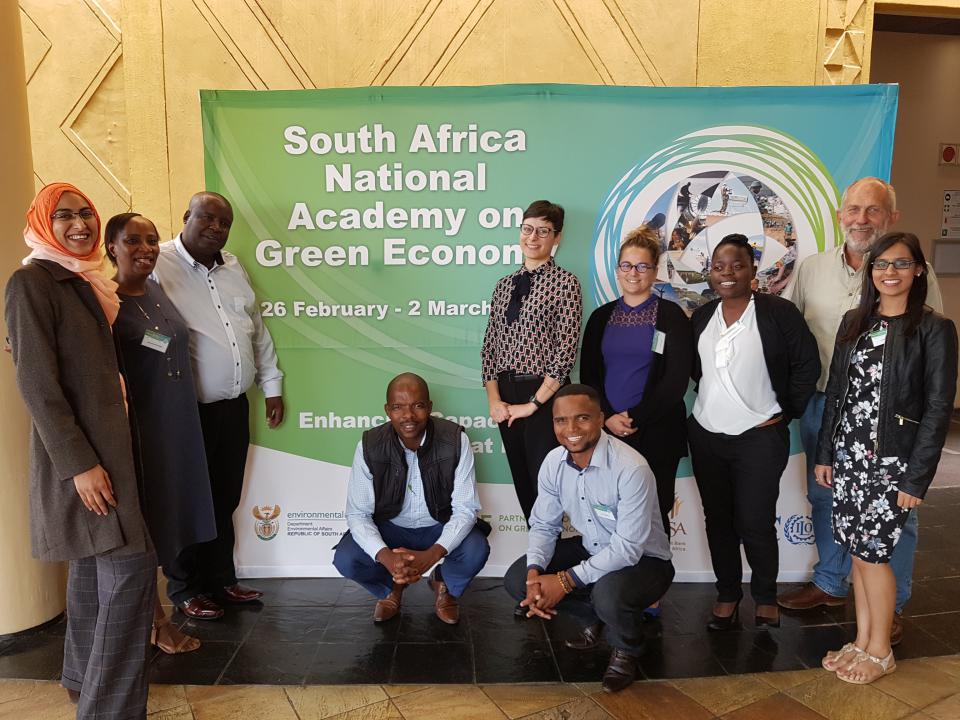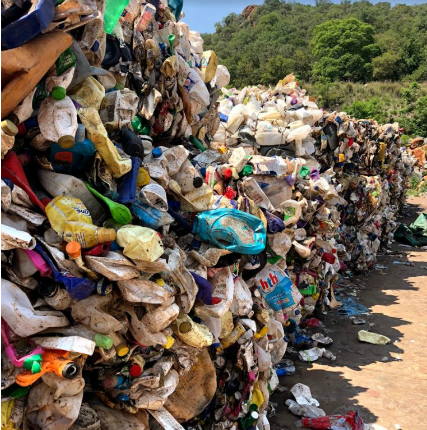South Africa’s National Academy on Green Economy Fosters Change

2 March 2018, Midrand, South Africa - Stephen Barrow, a consultant at the South African Organic Sector Organisation (SAOSA), was among 100 people who took part in the country’s National Academy on Green Economy.
 “This has been an amazing opportunity to expand our horizons and to interact with folk from different sectors of the green economy,” Barrow said. “I am very encouraged by PAGE and GIZ’s support for the organic sector in South Africa, which has been hugely important. We have battled to raise finances and had huge stumbling blocks, so wonderful doors have been opened.”
“This has been an amazing opportunity to expand our horizons and to interact with folk from different sectors of the green economy,” Barrow said. “I am very encouraged by PAGE and GIZ’s support for the organic sector in South Africa, which has been hugely important. We have battled to raise finances and had huge stumbling blocks, so wonderful doors have been opened.”
The five-day Academy in Midrand, which concluded on March 2, was organized by the Partnership for Action on Green Economy (PAGE), in collaboration with the South African Department of Environmental Affairs, the Deutsche Gesellschaft für Internationale Zusammenarbeit (GIZ) GmbH, and hosted by the Development Bank of Southern Africa. It brought together experts from national and provincial-level government, business and the private sector, labour, civil society and international organizations to share ideas on South Africa’s transition to a green economy.
“Green industrial policy and trade requires assistance from other areas within government – aligning environmental and industrial policy, so that a common vision of the green economy can be achieved,” noted Ntombifuthi Ntuli, Research Group Leader at Energy Industry, Council for Scientific and Industrial Research.
 Meanwhile, Olympus Manthata, a Green Fund Manager at the Development Bank of Southern Africa, stressed the importance of green economy transitions “responding to development challenges such as access to water and energy”.
Meanwhile, Olympus Manthata, a Green Fund Manager at the Development Bank of Southern Africa, stressed the importance of green economy transitions “responding to development challenges such as access to water and energy”.
Participants recommended strengthening outreach to provinces and municipalities as well as the private sector and civil society at the local level, to support their role in translating national green economy policies into practice. They also called for an increase in data collection and the development of indicators for the green economy, and green jobs policy-orientated research to inform decision making and fast-track project implementation, among others.
“Governance is not only about “government”, but governance is about how we all as stakeholders come together around transparent and fruitful processes,” said Mapula Tshangela, Senior Policy Advisor Sustainable Development at the South African National Department of Environmental Affairs (DEA)
A number of initiatives were proposed during the event that have the potential to pave the way towards a countrywide, locally-driven multi-stakeholder Green Economy platform, including:
- the development of business support services specifically targeted at Small, Medium and Micro-sized Enterprises (SMMEs) in the renewable energy sector, through the coordinated support of research institutes, local governments, business associations and NGOs;
- a country-wide capacity building initiative focused at the provincial level on sustainable public procurement and greening municipal financing;
- an Action Network that facilitates exchange of information and members’ involvement in on-going research, policy advice and capacity building initiatives;
- initiatives on sectoral and cross-sectoral projects such as regenerative and organic agriculture for food security and export and community engagement in sustainable waste management.
About PAGE
The Partnership for Action on Green Economy (PAGE) brings together the expertise of five UN agencies – UN Environment, International Labour Organization, UN Development Programme, UN Industrial Development Organization, and UN Institute for Training and Research. It supports nations and regions in reframing economic policies and practices around sustainability to foster economic growth, create income and jobs, reduce poverty and inequality, and strengthen the ecological foundations of their economies.
Phone 1: South Africa’s National Academy on Green Economy Fosters Change.
Phone 2: The Academy included a study visit to The Waste Group (Pty) Ltd, a waste management company established in 1986 and dealing with industrial and commercial waste markets in and around Pretoria.

